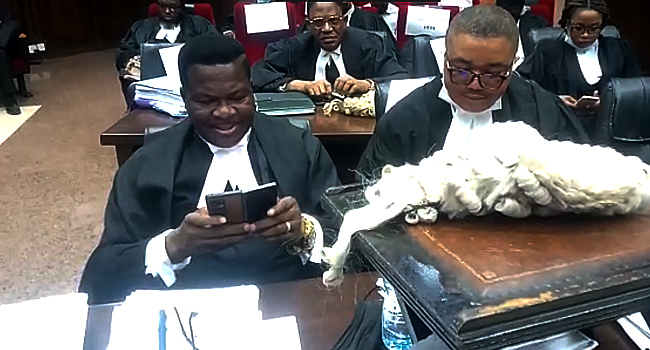The World Health OrganiSation (WHO), has described the new COVID-19 variant, NB.1.8.1, first detected in late January, as a descendant of the Omicron JN.1 lineage.
The WHO had announced the new COVID-19 variant, NB.1.8.1, currently spreading across parts of the world and causing concern among global health authorities.
It confirmed that the variant was responsible for a growing number of infections globally, prompting it to designate the strain as a “variant under monitoring” due to its increasing prevalence and potential to evade immunity from previous infections or vaccination.
The variant had quickly gained ground, with WHO data showing that it accounted for 10.7 per cent of globally sequenced COVID-19 cases between April 21 and 27, a significant rise from 2.5 per cent just one month earlier.
The majority of these new cases were reported in the Eastern Mediterranean, Southeast Asia, and Western Pacific regions.
In the United States, the Centers for Disease Control and Prevention (CDC) also confirmed a small number of NB.1.8.1 cases, especially among travelers arriving at airports in California, Virginia, Washington, and New York.
While the variant is spreading easily, current evidence suggests that it does not cause more severe illness compared to earlier strains.
Although there have been no reported cases yet in Nigeria, experts caution that the risk of importation remains high due to international travel.
The Nigeria Centre for Disease Control and Prevention (NCDC) had said that it was closely monitoring the situation and working with international health bodies to track any possible entry of the variant into the country.
The symptoms of NB.1.8.1 are similar to previous COVID-19 variants and may include sore throat, cough, fever, and fatigue.
Though it spreads efficiently, it is not currently associated with increased severity or death.
Experts have however warned that its ability to partially evade immunity means that individuals who have had COVID-19 in the past or received vaccination may still be vulnerable to reinfection.
They also said that existing COVID-19 vaccines still provided protection, particularly against severe illness and hospitalisation.
Vaccine manufacturers such as Pfizer and Moderna are said to be developing updated boosters that may offer additional protection against newer subvariants like NB.1.8.1 and its close relative, LP.8.1.
Health experts have also advised Nigerians to take proactive steps to protect themselves against the NB.1.8.1 variant.
They urged eligible individuals to get vaccinated or receive booster doses to strengthen their immunity.
Nigerians are also encouraged to maintain preventive measures, such as washing hands regularly, wearing face masks in crowded or poorly ventilated areas, and staying home when feeling unwell.
In addition, experts recommend that the public stay informed by following updates from the NCDC, WHO, and other reliable sources of health information.
NAN recalls that NB.1.8.1 is a rapidly spreading COVID-19 variant that has gained global attention.
While it does not appear to cause more serious illness, its ability to spread quickly and partially bypass immunity is a concern.
Nigerians are urged to remain vigilant, take preventive steps, and ensure their vaccinations are up to date to protect themselves and their communities.
(NAN)







